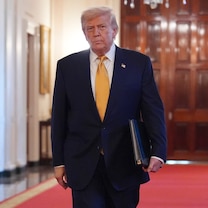Justices Scalia and Breyer: Little in Common, Much to Debate
Dec. 6, 2006 — -- They deeply disagree on the most divisive issues of the day: abortion, affirmative action, gay rights, the death penalty. In a rare appearance Tuesday night, Justices Antonin Scalia and Stephen Breyer explained why in a lively debate over the role of the Supreme Court and interpretation of the Constitution.
The conservative Scalia and liberal Breyer spent much of the 90-minute debate defending their respective approaches, mixing humor with substantive discussion of the law. The two have served together on the bench for 12 years now, and they share the easy familiarity of old friends, playing off one another and poking fun to score points.
So does Scalia believe Breyer is an activist judge? "I would never call him that to his face," Scalia quipped slyly.
And when Scalia told a story about a French friend who was puzzled by the complications of religion in America -- and he used a European accent in the telling -- Breyer jabbed right back.
"My only question: Why did the Frenchman have an Italian accent?" Breyer asked.
But there were no hard feelings backstage afterward.
"Want to go grab a hamburger?" Scalia asked Breyer as they left Washington's Capital Hilton, where the debate took place.
"Sure," Breyer said. "Let's go."
The two have written and lectured extensively on their differing approaches to the Constitution, which can produce dramatically divergent results on the Court's most dramatic and controversial cases. They agreed to appear onstage together Tuesday night to hash it out at an event sponsored by two legal organizations with views as opposing as the justices' -- the conservative Federalist Society and the progressive American Constitution Society.
"We have our differences," said Breyer during the debate. Those differences stem "from an approach about how you go about interpreting the Constitution."
Said Scalia: "These are widely divergent views.
"Are we taking broad concepts such as equal protection and due process and asking, What should these concepts mean today? That's one view," Scalia said. "Or on the other hand, are we saying, "What do these concepts mean when they were adopted?"



